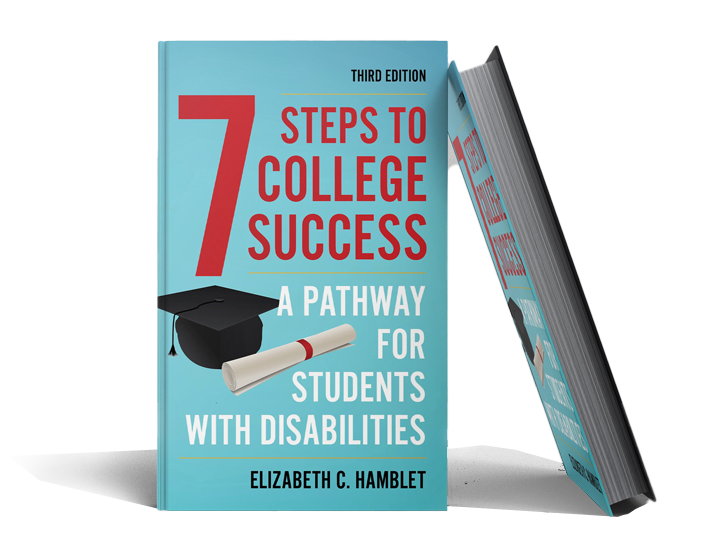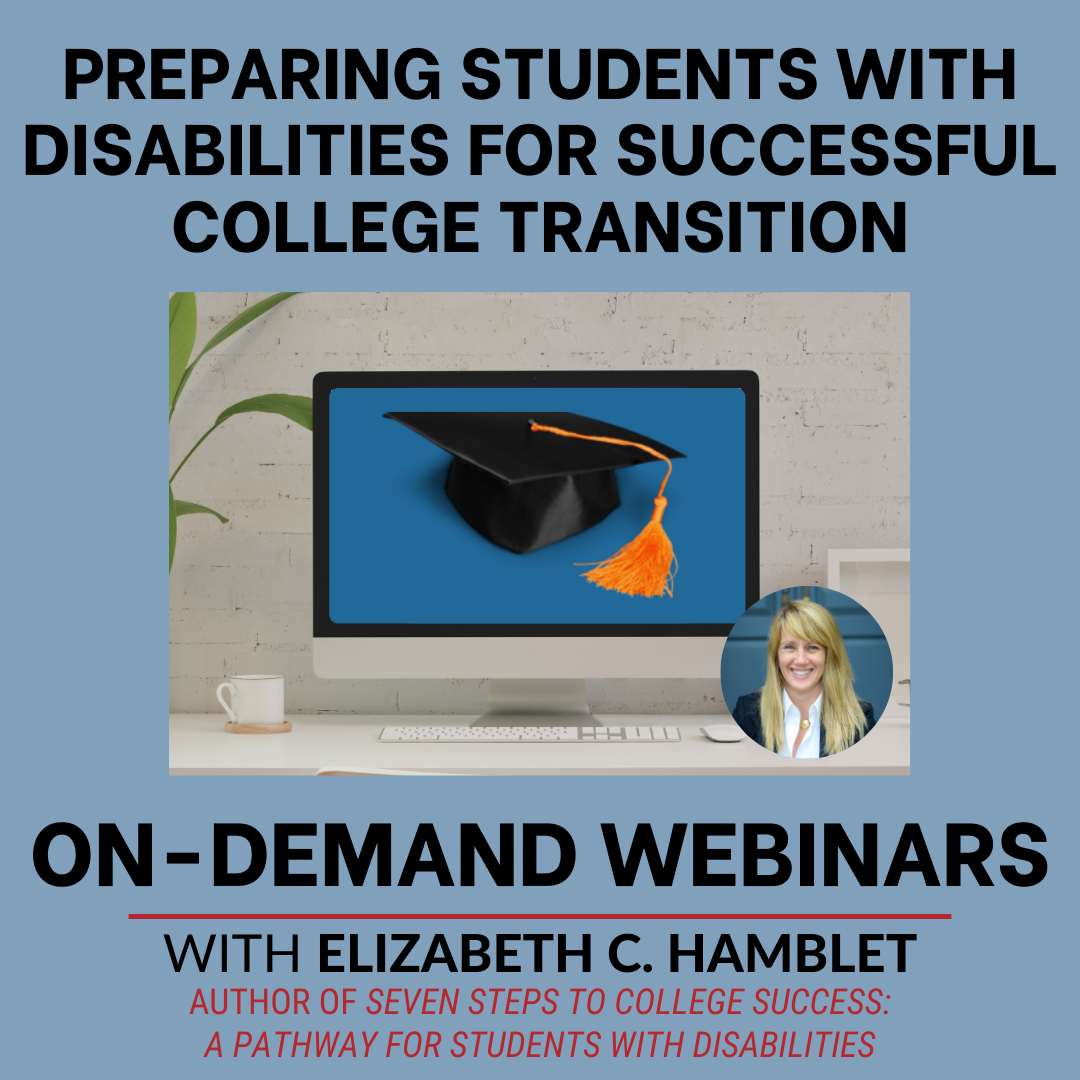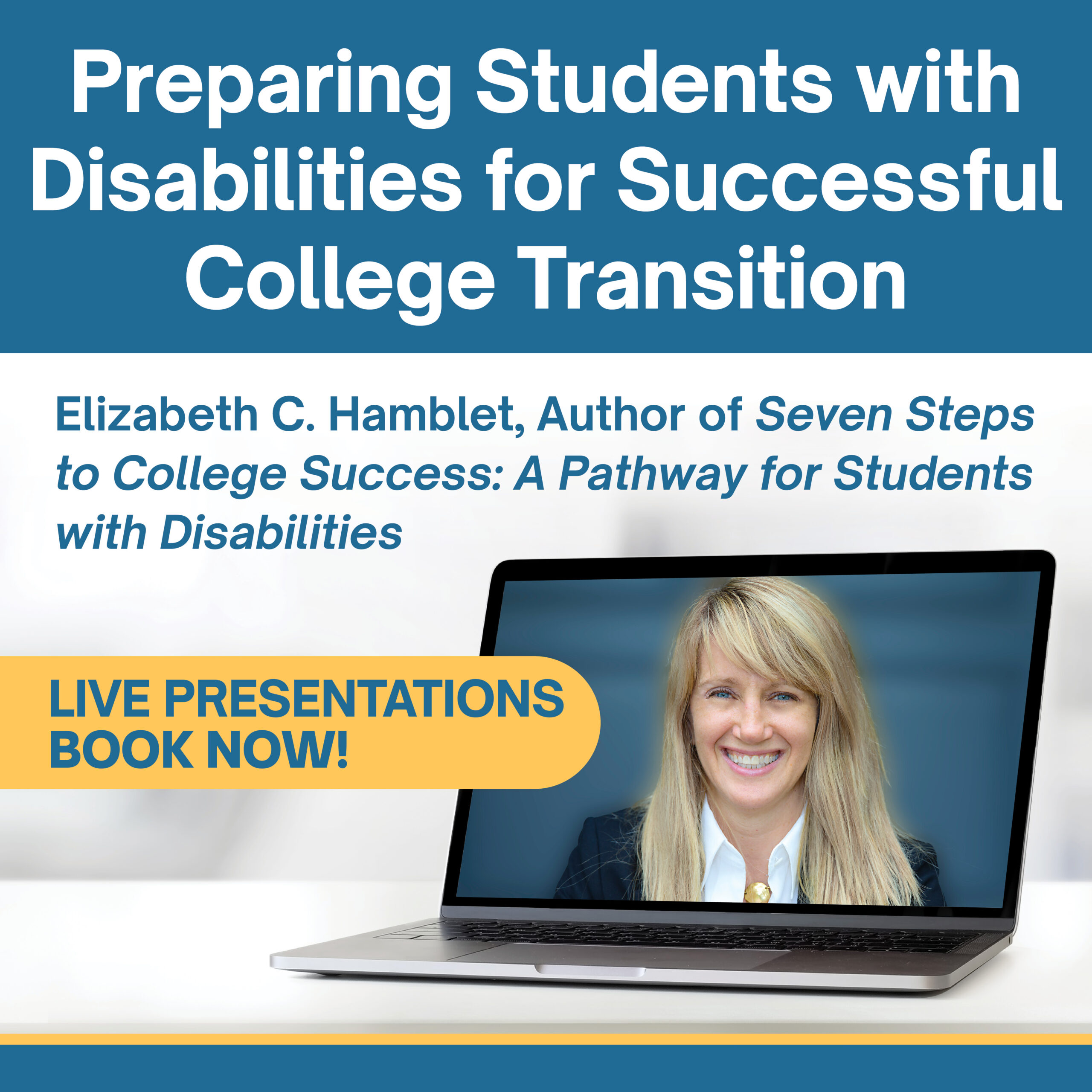Introduction
The documentation students need to request accommodations at college is the subject of numerous misunderstandings and myths. Statements that rely on outdated information circulate widely and can cause students with learning disabilities to worry about what they’ll need. Below, several common myths are discussed.
Myth #1 – Colleges have to accept an IEP or 504 plan as stand-alone documentation
College disability services offices (DS) may choose to accept plans by themselves (and some do), but they don’t have to. They can set their own documentation requirements. Read this post or watch this video to learn how to find these requirements online.
Myth #2 – If students submit an IEP, their college has to follow it, so parents should make sure their student has an IEP in their senior year of high school
IEPs aren’t valid after students graduate from (or age out of) high school. The same is true for 504 plans. Learn more in this post or watch this video.
Myth #3 – Parents should move their student from an IEP to a 504 plan by senior year of high school because colleges are subject to Section 504 and have to follow 504 plans
K-12 schools are covered by Subpart D of Section 504, and colleges are subject to Subpart E. While they are subparts of the same law, this doesn’t mean colleges have to follow 504 plans.; they don’t. 504 plans are no longer valid after students exit the K-12 system, as already noted. Learn more in this post or watch this video.
Myth #4 –It looks “better” (or “stronger”) when a student applying for accommodations at college has an IEP (vs. a 504 plan)
DS may not even ask students whether they had a plan in high school at all. And even if they do, it’s unlikely to matter what kind of plan it was, though it may matter at some schools. Again, students can find out whether the colleges that interest them will ask to see their high school plan by looking up this information on the DS site. (Again, you can read this post or watch this video to learn how to find it.)
One study found that only 10 out of 100 schools whose websites researchers reviewed said they’d take an IEP or 504 plan all by itself (with no further documentation required). But there’s no mention of these sites saying they thought one kind of plan provided stronger evidence than another. I’m not aware of any other studies looking at this question.
I made a brief video discussing this myth.
Myth #5 – If students didn’t have a formal plan in high school (either an IEP or 504 plan), they won’t get approved for accommodations at college
This is unlikely to be the case at most colleges. Often, students’ IEP or 504 is a helpful part of documentation, but it isn’t required for them to be approved at their college (though again, colleges can make this decision). Read this post or watch this video to learn more.
Myth #6 – Students with ADHD and/or autism won’t get accommodations at college if they haven’t had any testing for a learning disability
This is true at some colleges, but other colleges won’t require testing for these students. Students can look at the DS site to see what they require, as already noted.
Myth #7 – If the student was tested by their public school district, colleges have to accept the testing report
Again, colleges can set their own documentation requirements. For learning disabilities, they typically require what’s commonly called a psycho-educational evaluation (which includes testing of cognitive ability and academic skills).
As long as all of the subtests in a standard “battery” for each of these areas (ex. the Wechsler Adult Intelligence Scale, or WAIS, has 10 subtests in its standard battery), colleges that require testing are likely to accept the report, as long as it’s not deemed too old to be useful. (Not all colleges require testing, but students should check the requirements at every college they’ve applied to.) If the district testing professional has left some subtests out, or given an abbreviated battery (such as the Kaufman Brief Intelligence Test, or KBIT), colleges may find that insufficient. (All of this applies to testing done privately, too.) Learn more about what testing is often required in my book.
Students worried that the testing they have won’t be accepted should contact the DS office at the college they’ll attend. They may be more flexible than students expect.
Myth #8 – All colleges require that testing for students with learning disabilities be no more than 3 years old
This was prevalent among some colleges many years ago, and I have heard of examples where it’s true at some colleges, but many colleges are not this specific about how old testing can be. Many colleges say testing must be “current” or “recent” and may be more flexible than you think when accepting documentation.
For other kinds of conditions, there may be variations across colleges’ requirements, too.
Don’t assume anything about this issue. You should be able to find any college’s documentation requirements online.
Myth #9 – Colleges don’t/can’t ask for updated testing
Just because it’s true that many colleges don’t ask for testing done within the last few years doesn’t mean a number of them don’t. Again, you have to check.
Some people are under the mistaken impression that colleges aren’t allowed to ask for updated testing, no matter how old a student’s initial evaluation is. That is not true, either. Even if a student was first evaluated in the first grade and their school gave them an IEP every year through their high school graduation, that doesn’t mean colleges can’t ask for an updated evaluation to show their current level of functioning.
Myth #10 – If students’ documentation (IEP, 504, testing report) shows they’ve received certain accommodations in high school, their college has to provide the same accommodations
Colleges’ DS office may consider students’ recorded history of receiving certain accommodations when deciding what they’ll approve, but they are not obligated to provide the same ones unless they think the documentation shows a need for them. For instance, if a student was receiving copies of a classmate’s notes, but the documentation didn’t provide evidence of impairment in auditory comprehension, working memory, attention, or a grapho-motor weakness, their college’s DS office might not see a need to provide that accommodation.
They also may not approve some accommodations because they’re not required to do so. There are several categories of exceptions included in the laws that cover college accommodations. (Read my book for more on these. Read what DS directors say they do and don’t commonly approve, and see Myths About Learning Disabilities, ADHD, and College Accommodations .)
Again, colleges are within their rights in making individual decisions about accommodations, and in setting their documentation requirements.
Myth #11 – Even if their learning disabilities testing meets the colleges’ requirements, students will get better/more accommodations if they are tested privately (rather than by the public school district)
This myth makes the assumption that all public high schools don’t do a good job writing reports and all private examiners do, and that this will affect the quality and number of accommodations students will receive. Having read hundreds of reports in the course of my work, I can say that this is not a generalization anyone should make.
I have read some great reports from public schools. And I’ve read private reports that were long because they used a template that was mostly about the tasks of the tests themselves but provided few details about students’ history, little information about their performance on tests beyond the scores, or any helpful analysis. (See what I think good private reports should provide and learn how to shop for one.)
Perhaps people think that because they’re being paid privately, private examiners will recommend more accommodations than a public school district will. This may be true, but the simple presence of recommendations in a report doesn’t obligate colleges to provide those accommodations. What colleges typically look for is that each recommendation examiners make is supported by evidence from the testing. For instance, if an examiner recommended extended testing time for a student that didn’t have slow processing, slow retrieval, or low academic fluency, many colleges would be unlikely to approve it.
Also – even if a public high school hasn’t recommended certain accommodations that students think they need, students don’t need to get private testing just for the purpose of getting them written into a report. Students should still ask for any accommodations they want when they register with the DS office, and they should have an explanation for why they think they need them. (Parents and high school professionals can help them prepare some notes they can reference for this.) If DS sees support for them in the testing or other documentation, they will likely grant it.
Individual private examiners may suggest more intensive supports than public high schools do, but that’s not a generalization people should make. And again, those supports would have to be viewed as necessary to accommodate the student and be available at the college level. For instance, an examiner might recommend that a student be allowed to retake exams for a better grade. This is not the kind of accommodation many colleges would make, so the mere recommendation would not be sufficient to get it approved.
All of this is said under the assumption that both the high school report and the private report contain the testing the college requires. It is unfortunately true that if, for instance, the high school will only do a cognitive evaluation (and won’t test student’s academic skills), students may need to get private testing at that point.* That said, they should contact the college and ask whether they’d show flexibility on that point. It’s possible they will get a pleasant surprise.
Also, students getting tested privately should make sure to give the examiner (at the point they agree to the testing) the documentation guidelines for the college they’ll attend. They should not assume the examiner knows what each college requires, and that they’ll do whatever is needed for the student’s own college.
Myth #12 – Students with learning disabilities need to have a full neuro-psychological evaluation in order to get accommodations at college
Neuropsychological testing usually includes the same types of batteries used in psycho-educational evaluations, plus measures of attention, additional memory tasks, and more.
There may be colleges that require such testing (which most public school districts don’t utilize in their assessments), but that is likely not the norm. For learning disabilities, colleges may require just a psycho-educational evaluation. But be aware that some colleges will accept just a 504 plan or IEP. (Again, it’s important to check rather than assume.)
If a college says it requires neuropsychological testing, it’s worth the time and effort for students to show DS what they have and ask if they require more. DS may decide there’s enough support for their requested accommodations in students’ current documentation and not require anything more.
*High school seniors should make sure to contact the DS office at the college they’ll attend before pursuing any new testing; they may learn that they’ll accept what they have. If DS confirms they need new testing, and can’t get it from their public school district, Understood offers ideas for how to get it at a reduced rate, and The Clay Center for Young Healthy Minds offers a post on whether insurance might cover it.




